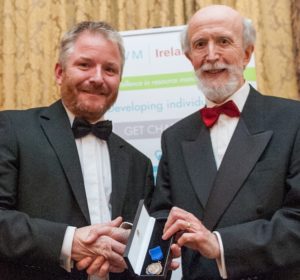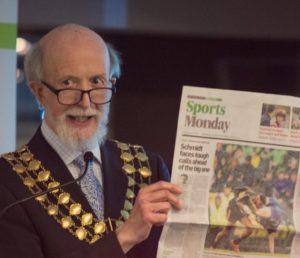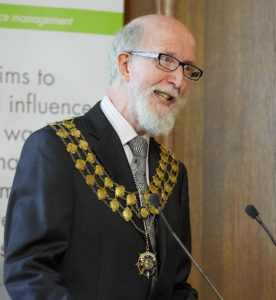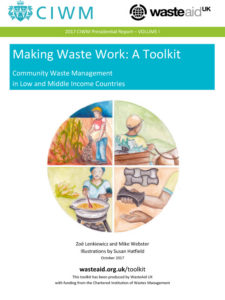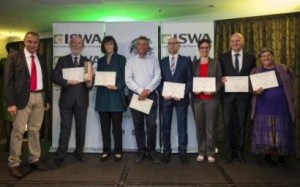Waste and resource management on COP29 agenda as a priority climate issue
I have been writing articles and blogs for nearly 10 years to challenge the common misperception that waste and resource management contributes minimally to mitigation of climate heating. At long last, my peer-reviewed paper with ISWA co-authors collating the evidence has now been published open-access. We show that one can have HIGH CONFIDENCE that the sector’s potential is SIGNIFICANT. The paper provides a Call to Action to enable this global opportunity to be realised.
Waste management needs to be central to the plastics treaty
ISWA has published my blog that makes the evidence-based case for bringing waste management onto the main agenda of the Intergovernmental Negotiating Committee (INC) for the proposed international treaty to end plastics pollution; the third INC meeting is in Nairobi 13-17 November 2023. Much of the focus of negotiations is rightly on plastics reduction and circularity. But a necessary parallel component is sound waste management and plastics leakage prevention. It is not a case of one or the other – both are necessary and complementary.
Socio-economic development drives solid waste management performance in cities
Our new open access paper tests and confirms for the first time the long-standing hypothesis that both the rate of municipal solid waste (MSW) generation in a city, and the performance of its MSW management system, depends on its level of socio-economic development...
DCW wins the 2022 ISWA Publication Award
It is indeed nice to have your work recognised! My co-authors Andy Whiteman and Mike Webster will receive the 2022 ISWA Publication Award this week at the ISWA World Congress Gala Dinner in Singapore, for our conceptual framework and global theory of waste and development, The Nine Development Bands. The 9DBs was published open access last year and is a powerful addition to the practitioner’s toolkit, bringing depth and nuance to understanding waste and resource management systems globally and helping you to focus your time and resources on achieving maximum impact. I am proud of all five of my ISWA Publication Awards over the last 20 years!
The untapped potential for better waste and resource management to curb global heating
I am pleased that the RICS Land Journal has published online an updated version of my article on the untapped potential for the waste and resource management sector to act as an enabler to unlock significant climate mitigation benefits across the economy. My best estimate of the mitigation potential is at least 15-20% of global carbon dioxide (equivalent) emissions, which is far beyond the IPCC’s estimate of 3% for the narrowly defined end-of-the linear-economy ‘waste’ sector, which is necessarily used in official climate reporting to avoid double counting.
Diving Deep: deploying finance to prevent plastic pollution of the oceans
A key constraint to improving waste and resource management in many countries is a lack of access to investment finance. Extending waste collection to all and phasing out uncontrolled dumping and open burning in low-income countries would significantly cut the mass of plastics reaching the ocean. So the UNEP Finance Initiative publication Diving Deep, aimed at banks, insurers and institutional investors, is very welcome. Guidance is provided in the form of a science-based, actionable toolkit, to ensure that their investments, both in product manufacture and in waste management, encourage waste prevention and sound waste management, thus keeping plastics out of the oceans.
Practical Action focuses attention on solid waste management
DCW was sent a copy of Practical Action’s new report ‘Managing Our Wastes 2021’ a few weeks ago and invited to write an endorsement for it. Having read and reviewed it, I was happy to do so; the report was launched today in a webinar hosted by UN-Habitat. I am quoted on the back cover: ‘Most development work tackles the issue of solid waste management from the ‘top down’, and often focuses on (large scale) infrastructure. Practical Action strengthens the ‘bottom-up’, people-centred aspects. I commend to you this important new manifesto to put people back at the centre of how we manage our solid wastes.’
DCW wins 2024 ISWA Publication Award
DCW won the 2024 ISWA Publication Award for his magnum opus, looking back over his long career at the evolution of waste and resource management since the first environmental control legislation in the 1970s, and reflecting on current and future priorities.
DCW awards his Presidential Medal
DCW awarded his CIWM Presidential Medal for 2018 to Mike Webster, the founder and CEO of the new charity Wasteaid, which is working directly with local communities to tackle the global waste crisis.
DCW hands over CIWM Presidency
DCW handed over to Enda Kiernan at the Aviva Stadium in Dublin on 13th November 2018. The Gaelic Football team which Enda manages appeared in the lead photo story of the previous day’s Irish Times.
DCW inaugurated as CIWM President
Professor David C Wilson giving his inauguration speech as CIWM President 2017 at Church House Westminster in October 2017. His theme for the year was solid waste management as the forgotten utility service, underpinning modern society.
DCW’s CIWM Presidential Report 2017
DCW commissioned WasteAid UK to prepare a practical toolkit for poor communities on how to make useful products from the low-value plastics and organics in their waste. In its first year, the website was visited 56,000 times, with 7,000 downloads of the toolkit.
ISWA Publication Award 2015
DCW with co-authors Ljiljana Rodic, Andy Whiteman, Costas Velis, Barbara Oelz, Joachim Stretz and Anne Scheinberg, receiving the Award from ISWA Scientific and Technical Committee Chair Antonis Mavropoulos (left), at the ISWA 2015 World Congress in Antwerp on Tuesday 08 September.

